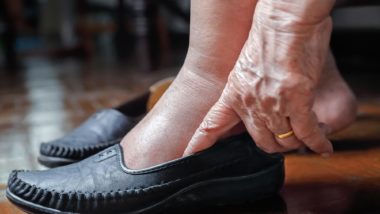Top Class Actions’s website and social media posts use affiliate links. If you make a purchase using such links, we may receive a commission, but it will not result in any additional charges to you. Please review our Affiliate Link Disclosure for more information.
Pioglitazone (more commonly known by its brand name Actos) is a popular type-2 diabetes drug. Some diabetics have reportedly suffered serious side effects of pioglitazone, including bladder cancer.
What is Pioglitazone?
Actos is a type-2 diabetes medication manufactured by Takeda Pharmaceuticals. Actos belongs to a class of drugs known as thiazolidinediones and was first approved by the U.S. Food and Drug Administration (FDA) in 1999. Since then, it has become increasingly popular. In 2010 alone, Actos reported sales of more than $2.6 billion.
How Does Pioglitazone Control Diabetes?
Type-2 diabetes is actually a condition in which the body’s cells stop responding to insulin (unlike type-1, a genetic condition in which the pancreas fails to produce any insulin). This condition is known as “insulin resistance,” and can be caused by a poor diet, obesity, and/or a sedentary lifestyle.
Drugs of the glitazone class work by reducing insulin resistance in a few different ways. By affecting specific cellular proteins and controlling the breakdown of fats, Actos reduces the production of glucose (blood sugar) in the liver. This, in turn, reduces the amount of glucose in the bloodstream, lowering blood sugar levels. Actos’s control over high blood sugar then helps protect type-2 diabetics from problems like kidney damage, blindness, nerve problems, loss of limbs, and more.
Is Actos Approved for Anything Else?
No, however, there have been studies indicating that Actos may be useful in treating depression. Because of its effect on the glial cells of the nervous system that surround neurons, it was also studied for the treatment of children with autism. However, Actos has not been approved for either of these conditions.
 What Actos Complications Should I Be Aware Of?
What Actos Complications Should I Be Aware Of?
In several recent studies, pioglitazone has been linked to an increased risk of bladder cancer, according to the Mayo Clinic.
Takeda Pharmaceuticals was conducting a 10-year prospective study on pioglitazone’s potential association with bladder cancer, and at only the five-year mark they had already found an increased bladder cancer risk. Since the results of that study were published, there was been further investigation into the connection.
The British Medical Journal (BMJ) published the results of a study showing that using Actos for 12 months or longer, and at a higher dosage, can increase the risk of developing cancer by up to 83%. The results of these studies led the FDA in 2011 to warn the public about the risk.
In 2016, the FDA announced that Actos “may be associated with an increased risk in urinary bladder cancer,” and the agency updated the drug’s labels to include the information about the studies.
The FDA warned health care professions not to use pioglitazone in patients already diagnosed with bladder cancer, as well as carefully weigh the benefits and risks before prescribing Actos to a patient with a history of the disease.
The FDA safety announcement also recommended that patients taking Actos keep an eye out for a few key symptoms of bladder cancer, and contact their doctor immediately if they experience:
- Blood or a red color in the urine
- New or worsening urge to urinate
- Pain when urinating
Are There Risks Beyond Actos Bladder Cancer?
As with any medication, Actos comes with side effects included on its warning label. Common Actos side effects are headaches, muscular pain, throat inflammation, weight gain, tooth problems, and swelling. Serious complications can include vision problems, bone fracture, reddish-colored urine, or pain while urinating.
Actos should not be taken in combination with sulfonylureas (Glyburide, Glucotrol, DiaBeta) or insulin therapy, as this can increase the risk of hypoglycemia (low blood sugar). Hypoglycemia symptoms to look out for include sudden sweating, shaking, fast heartbeat, hunger, blurred vision, dizziness, or tingling hands/feet. Actos may also reduce the effectiveness of oral contraceptives, making pregnancy more likely. Heart failure, hypoglycemia, and osteoporosis are also known risks of taking Actos.
Have Any Actos Lawsuits Been Filed?
Takeda has already faced thousands of Actos lawsuits from patients alleging that the type-2 diabetes drug caused them to develop bladder cancer. In some cases, these lawsuits allege, the disease proved fatal.
Lawsuits claim that Takeda was aware of the link between Actos and bladder cancer, but failed to warn patients and the medical community about this risk, placing company profit over patient safety.
In 2015, Takeda agreed to pay $2.4 billion to settle thousands of Actos lawsuits. The settlement resolved some 9,000 lawsuits. Previously, Takeda (along with Eli Lilly, another pharmaceutical company that helped market the drug) paid $9 billion in punitive damages after a jury found that Takeda had hidden the risk of cancer associated with Actos. A judge reduced the judgment to $36.8 million.
Another Actos class action lawsuit, filed in May 2018, accused the company of withholding from the public information about the bladder cancer risk associated with Actos because it “knew that if the medical community were aware that Actos could cause bladder cancer, it would not have been the blockbuster drug they needed Actos to be.”
Can I File a Pioglitazone Lawsuit?
If you or someone you love have suffered side effects of pioglitazone, such as bladder cancer, you may be able to file a lawsuit and pursue compensation. Of course, filing a lawsuit cannot undo the pain and suffering caused by medication side effects, nor can it bring a loved one back to life, but it can at least help to alleviate the financial burden incurred by medical expenses, lost wages, and more.
Filing a lawsuit can be a daunting prospect, especially in the wake of serious medical complications like bladder cancer, so Top Class Actions has laid the groundwork by connecting you with an experienced attorney. Consulting an attorney can help you determine if you have a claim, navigate the complexities of litigation, and maximize your potential compensation.
If you or a loved one took Actos and developed bladder cancer, you may qualify to file an Actos lawsuit and for an Actos settlement. Join this Actos lawsuit investigation by filling out the FREE form on this page.
ATTORNEY ADVERTISING
Top Class Actions is a Proud Member of the American Bar Association
LEGAL INFORMATION IS NOT LEGAL ADVICE
Top Class Actions Legal Statement
©2008 – 2024 Top Class Actions® LLC
Various Trademarks held by their respective owners
This website is not intended for viewing or usage by European Union citizens.
Get Help – It’s Free
Join a Free Actos Lawsuit Investigation
If you qualify, an attorney will contact you to discuss the details of your potential case at no charge to you.
PLEASE NOTE: If you want to participate in this investigation, it is imperative that you reply to the law firm if they call or email you. Failing to do so may result in you not getting signed up as a client or getting you dropped as a client.
Oops! We could not locate your form.


 What Actos Complications Should I Be Aware Of?
What Actos Complications Should I Be Aware Of?










